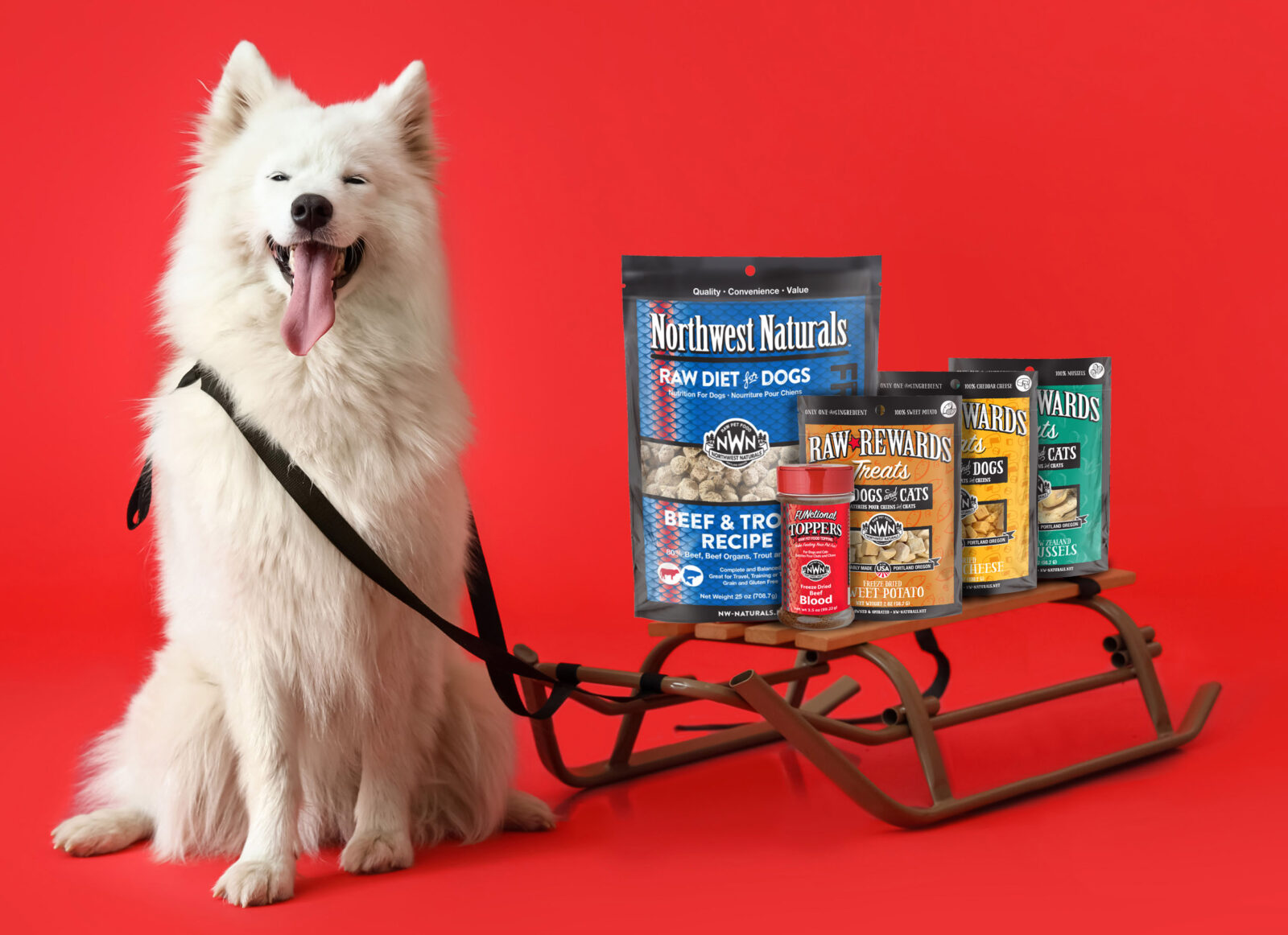
Tis the Season for Treats
One of our favorite parts of holiday celebrations is the special foods associated with the festivities. Treats of all kinds abound, and often we are tempted to share our human goodies with our beloved dogs and cats. A simple note of caution – don’t do it. Most human treats are far too sugary, too spicy, too fatty, and even potentially deadly (chocolate for example) for our cats and dogs’ carnivore digestive systems. Let’s face it, none of us wants to end our celebrations at the emergency vet clinic with a sick pet.
So here’s an idea on how to safely include your pets in yummy holiday fun
Before the event/events begin go to a nearby pet supply store and stock up on your pet’s favorite treats. Ask the clerks which are their most popular tidbits and get adventurous, always keeping your pet’s health in mind. Put those treats into pretty glass/tin/wooden containers around the house, and when you or a friend are tempted to slip your pet a tiny piece of pie, instead reach for the container of pet-appropriate goodies. And guess what? The treats that your little carnivores (dogs and cats) will love the most are actually good for them.
Carnivores crave meat
It’s the food their bodies were designed to eat and thrive on, so the tastiest treats for your dogs and cats are meat treats. Those pretty cookie treats with yogurt icing and carob chips that look so enticing to us are not good for our pets. One or two as a holiday luxury would probably not be a serious dietary infraction, depending on the state of your pet’s health. But if your dog or cat has not had their taste buds corrupted by an unnatural diet, meat treats will bring them the most satisfaction and be far better for their health
Types of Treats 
There are three broad classifications of treats: high-value training treats, ordinary treats, and long-lasting treats. When you go to a dog show you see the classic example of high-value training treats as handlers offer tiny bites to get their dog’s attention and stay calmly in a show pose. These super tasty small treats are also used for training and reinforcing desirable behaviors. These are the treats your pet will practically stand on their heads to get. They are often pure meat and are usually more expensive than ordinary treats.
Here are a few of my choices for high-value, quick treats:
- Northwest Naturals Raw Rewards – Pork liver, Beef liver, Chicken liver, Pork hearts, Chicken hearts, Beef hearts, Minnows, Shrimp, Salmon, Chicken breast
- Dr. Karen Becker’s Berry Bites and Forever Dog Bites
- Green Juju treats in various flavors
Ordinary treats are what you give your pet on a fairly regular basis just because we like to give our pets treats. For instance, my dogs get a treat when they come in from the backyard, sit in the kitchen, and wait for me to towel off the rain. They also get a treat just before bedtime. These are not particularly fancy, just a small morsel that they look forward to getting. And if for some reason I forget, their big, reproachful eyes are quick to remind me that this is a snack occasion and I need to get with the program! Obviously, they have me well trained.
Some of the ordinary treats my dogs love are:
- Farmland Traditions Beef and Chicken jerky treats
- Northwest Naturals Chicken, Duck, and Turkey necks
- Quackers Duck breast
Long-lasting treats are the ones we use to keep our pets occupied for a while. This can mean practically anything since some dogs are such aggressive chewers that no long-lasting treats will last very long. Moderate and light chewers can be kept quiet and content for hours depending on the type of long-lasting treats you choose.
Here are some that my moderate chewers adore:
You may have noticed that I rarely give my pets cookie-type treats. All the treats listed above are meat-based, freeze-dried, dehydrated, or lightly cooked. Minimal processing and 100% meat are the secrets when choosing palatable, healthy treats that will work well for both our dogs and cats.
A quick word of warning about some popular treats:
- Never give your pets peanut butter treats. Most peanut butter contains aflatoxin which is a mold known to cause cancer and liver damage. It is ubiquitous in peanuts so why take the risk? Peanut butter may contain sugars or worse xylitol (deadly to dogs and cats), is high in inflammatory omega-6 fats, and contains lectins (antinutrients) that harm dogs’ and cats’ digestion.
- Leave rawhide treats on the store shelf. Rawhide has been treated with powerful solvents whose residue can harm your pet. They are also extremely hard to digest and often are the cause of blockages resulting in surgery.
- Avoid smoked bones and other smoked treats such as pig’s ears. The smoking process involves some less-than-friendly chemicals that are tasty but harmful, and smoked bones present a real danger to canine and feline teeth. Why take chances with unhealthy treats when there are so many delicious and nutritious alternatives?
We all enjoy sharing special occasions with our pets, and treats can be a memorable part of the fun. Just remember that holiday calories do count and factor that into your generosity with Fido and Felix. Choose their treats wisely for a safe, joyous, tummy-friendly holiday season.